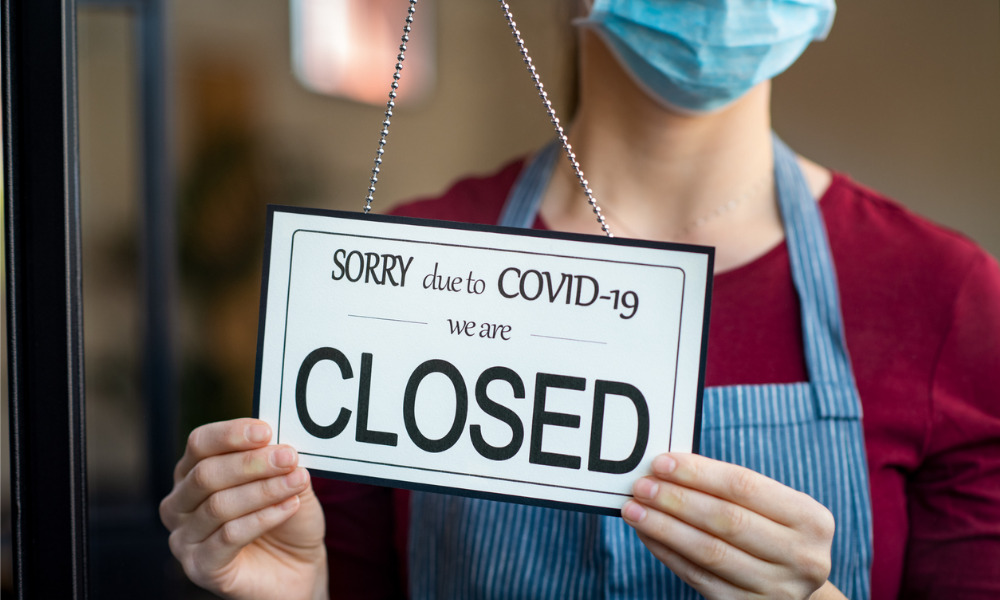Latest survey shows small business owners' sentiment matching depths last seen during onset of pandemic

Small business confidence has plunged yet again as another round of crushing restrictions and lockdowns is imposed two years into the pandemic, according to preliminary results from the Canadian Federation of Independent Business (CFIB) Business Barometer.
The three-month index fell by over 10 points to 34.5, and the 12-month outlook sank to 52.4, the lowest level since April 2020.
Simon Gaudreault, vice-president of National Research at CFIB, said in a statement, "We are once again seeing negative staffing plans and more owners who say their business is in bad shape than those who say it is in good shape. This really underlines how precarious the situation is for a lot of small businesses."
Other business health indicators have also declined with almost a quarter (24%) of business owners foreseeing a reduction of their full-time staff in the next three months, compared to just 16% who planned to hire. At the same time, three out of 10 (31%) admitted their business is in dire straits, though 29% say theirs is in good shape.
That’s in contrast to December, when only 19% reported that their business was in poor condition and 39% stated they were in good business.
"We're seeing echoes of the first months of the pandemic, when business owners really didn't know when they would be able to reopen and were facing tough choices, like whether to lay off staff or even cut their losses and close for good," Andreea Bourgeois, Director of Economics at CFIB, said.
"Sadly, COVID restrictions/lockdowns and consumer panic have caused business confidence to plummet," said CFIB Chairman Dan Kelly. "CFIB is calling on provinces to announce a quick end to COVID restrictions and all governments to return to similar levels of support as were in place early in the pandemic."
To soften the impact, CFIB suggests renewing wage and rent subsidies to all businesses who lost revenue on a sliding-scale basis. They also proposed reviving the Canada Emergency Business Account (CEBA) loan program with an additional $20,000 loan, which would allow small firms to recuperate, and expanding provincial grant programs to include all businesses suffering a decrease in revenues.
Businesses in Ontario are seeing some relief. The new Ontario Business Costs Rebate Program provides a rebate of up to 100% on property tax and energy costs for eligible employers who were required to close or reduce capacity due to government-ordered restrictions aimed at reducing COVID. The government has also declared a six-month interest- and penalty-free period for Ontario businesses to make payments for most provincially administered taxes, as well as a COVID-19 Small Business Relief Grant of $10,000 to eligible businesses subject to closure during this time.
"This may be the most economically dangerous point in the pandemic," Kelly stated. "Businesses are desperately weakened after two years of incredible restrictions, they've taken on an average of $170,000 in debt, and now, just as they were beginning to recover in the fall, governments have gone back to lockdowns and capacity restrictions without fully returning to the support programs that were in place early in the pandemic. This needs to change today if we want to avoid mass casualties in the small business community."



